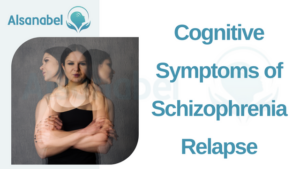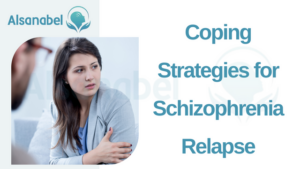Key Symptoms of Schizophrenia Relapse 2023
- Category antipsychotic medication
Schizophrenia Relapse
Schizophrenia relapse refers to the reoccurrence or worsening of symptoms in individuals diagnosed with schizophrenia. It is essential to understand the key symptoms of a relapse to ensure timely intervention and proper management.
Understanding Schizophrenia and its relapse refers
Schizophrenia is a chronic mental disorder characterized by a distortion of thoughts, emotions, and perceptions. While symptoms may vary in individuals, common signs include hallucinations, delusions, disorganized speech, and impaired cognitive function.
Relapse occurs when these symptoms resurface or become more severe after a period of stability. Recognizing the early warning signs can help prevent a full-blown relapse and minimize the impact on the people’s daily functioning and overall quality of life.
Risk factors for Schizophrenia relapse refers
Several factors can contribute to an increased risk of relapse in people with schizophrenia. These include:
- Non-compliance with medication:Skipping or discontinuing prescribed antipsychotic medication can increase the likelihood of relapse.
- High levels of stress:Stressful life events, such as job loss, relationship problems, or financial difficulties, can trigger a relapse.
- Substance abuse:Alcohol or drug abuse can worsen symptoms and increase the risk of relapse.
- Poor social support:Inadequate support from family, friends, or healthcare professionals can contribute to relapse.
Recognizing these risk factors and taking appropriate measures, such as medication adherence, stress management, and a strong support system, can help individuals with schizophrenia reduce the risk of relapse and maintain stability in their condition.
Cognitive Symptoms of Schizophrenia Relapse

Difficulties in concentration and attention
When people with schizophrenia experience a relapse, they may find it challenging to concentrate and pay attention to tasks. They may become easily distracted, have trouble staying focused, and struggle to complete even simple tasks. This can affect their ability to work, study, or engage in everyday activities.
Memory problems and disorganized thinking
Memory problems are also common during a schizophrenia relapse. Individuals may have difficulty remembering recent events or important information. Disorganized thinking is another cognitive symptom that can manifest during a relapse. Their thoughts may become fragmented, making it challenging for them to communicate coherently and express themselves clearly.
These cognitive symptoms can significantly impact the people’s daily functioning and quality of life. It’s important to recognize these signs and seek professional help when necessary to prevent further deterioration and provide appropriate treatment and support.
If you or someone you know is experiencing these symptoms or any other signs of a schizophrenia relapse, it’s crucial to reach out to a healthcare professional or mental health specialist. Early intervention and proper management can help minimize the impact of relapses and improve long-term outcomes for individuals with schizophrenia.
Behavioral Symptoms of Schizophrenia Relapse
Schizophrenia is a chronic mental disorder that requires ongoing management. Recognizing the signs of a relapse is crucial in order to seek prompt treatment. Here are some key behavioral symptoms that may indicate a relapse:
Changes in thought patterns and speech
During a relapse, individuals with schizophrenia may experience disorganized thinking and difficulty communicating their thoughts clearly. They may exhibit incoherence, speaking in a way that is difficult to understand, or jumping from one topic to another without logical connections. These changes in thought patterns and speech can disrupt daily functioning and may be a strong indicator of relapse.
Social withdrawal and isolation
Another common behavioral symptom of schizophrenia relapse is social withdrawal and isolation. Individuals may lose interest in activities they once enjoyed and prefer to spend most of their time alone. They may avoid social interactions or have difficulty engaging in conversations. This withdrawal from others can worsen feelings of loneliness and exacerbate symptoms of the disorder.
It is important for people with schizophrenia and their loved ones to be aware of these behavioral symptoms and seek professional help as soon as they arise. Early intervention and treatment can help prevent further deterioration and improve overall quality
Emotional Symptoms of Schizophrenia Relapse
Mood swings and erratic emotions
When someone with schizophrenia experiences a relapse, there are certain emotional symptoms that may become evident. Mood swings and erratic emotions are common signs of a relapse. These individuals may experience sudden shifts in their mood, ranging from extreme sadness to intense anger or euphoria. These mood swings can be unpredictable and may occur without any obvious trigger. It is important to note that these emotional changes are usually disproportionate to the situation at hand.
Increased irritability and agitation
Another emotional symptom of schizophrenia relapse refers is increased irritability and agitation. Individuals may become easily annoyed or angered by minor things that would not usually bother them. They may also exhibit restlessness and have difficulty staying calm or relaxed. This heightened irritability and agitation can make it challenging for them to communicate and interact with others effectively.
It is crucial to monitor these emotional symptoms, as they can indicate a relapse in schizophrenia. If you or a loved one experiences these symptoms, it is important to seek professional help and support as soon as possible. Early intervention and treatment can help manage symptoms effectively and prevent the relapse from worsening
Read more:
Fully detail about schizophrenia in Qatar
Physical Symptoms of Schizophrenia Relapse
Sleep disturbances and changes in appetite
During a relapse of schizophrenia, individuals may experience sleep disturbances such as insomnia or excessive sleepiness. They may also experience changes in appetite, resulting in significant weight gain or loss. These physical symptoms can be indicators of a relapse and should be monitored closely.
Fatigue and lack of energy
Feeling constantly tired, lacking energy, and having difficulty in performing daily activities are common physical symptoms of schizophrenia relapse. Individuals may struggle with basic tasks and may find it challenging to engage in social interactions due to extreme fatigue.
It is important to note that these physical symptoms alone may not necessarily indicate a relapse. However, if these symptoms are accompanied by other warning signs of a relapse, such as increased hallucinations, delusions, or difficulty in thinking and concentrating, it is crucial to seek professional help promptly.
Early detection and intervention are key in managing schizophrenia relapses. Regular communication with a healthcare provider and understanding the warning signs can help individuals and their loved ones take appropriate steps to prevent or minimize the impact of relapses.
Increased anxiety and restlessness
One of the key warning signs of a schizophrenia relapse is increased anxiety and restlessness. Individuals may experience heightened levels of anxiety, feeling constantly on edge or overwhelmed. Restlessness and agitation can also accompany this increased anxiety. It is essential to pay attention to these changes, as they may indicate a potential relapse.
Changes in perception and sensory experiences
Another early warning signof a schizophrenia relapse is changes in perception and sensory experiences. This can include hallucinations, where individuals may see, hear, or feel things that are not actually present. Changes in perception can also lead to an altered sense of reality and difficulty in distinguishing between what is real and what is not.
Recognizing these early warning signs is critical in managing schizophrenia and preventing relapse. If you or someone you know is experiencing any of these symptoms, it is essential to reach out to a healthcare professional for proper evaluation and support. With early intervention and comprehensive treatment, individuals with schizophrenia can lead fulfilling lives.
Hallucinations and delusions
Hallucinations are sensory experiences that feel real but are not based on external stimuli. They can involve seeing, hearing, smelling, or feeling things that others don’t experience. Delusions, on the other hand, are false beliefs that are not based on reality. They can be paranoid, grandiose, or persecutory in nature.
Paranoia and suspiciousness
Paranoia refers to an intense and irrational distrust of others, often accompanied by the belief that others are out to harm or deceive them. Suspiciousness involves being excessively wary of others, feeling constantly on guard, and reading into innocent actions as malicious.
Coping Strategies for Schizophrenia Relapse

Seeking professional help and medication management
When it comes to coping with schizophrenia relapse, seeking professional help and managing medication are crucial steps to take. It’s important to work closely with a mental health professional who can provide guidance and support during this challenging time. They can help monitor symptoms, make necessary adjustments to medications, and provide therapy or counseling to address any emotional or psychological distress.
Regularly taking prescribed medications is also vital in managing schizophrenia relapse. Medications can help control symptoms and prevent them from worsening. It’s essential to follow the prescribed dosage and share any concerns or side effects with the healthcare provider for proper adjustments.
Maintaining a support system and self-care practices
Building and maintaining a strong support system is essential for individuals coping with schizophrenia relapse. This can include family, friends, support groups, or mental health professionals. Having a network of understanding and supportive individuals can provide encouragement, advice, and assistance in times of need.
In addition to a support system, practicing self-care is crucial for managing schizophrenia relapse. This can involve engaging in activities that promote overall well-being, such as regular exercise, healthy eating, sufficient sleep, and stress reduction techniques like mindfulness or meditation.
By incorporating these coping strategies, individuals with schizophrenia can better navigate and manage relapses, leading to improved overall well-being and quality of life.
Importance of early intervention and treatment
- Prevent deterioration:Identifying symptoms of relapse early can help prevent further deterioration in mental health. Early intervention and treatment significantly increase the chances of managing symptoms effectively and reducing the impact on daily functioning.
- Enhance quality of life:Early detection allows individuals to receive timely medical attention, medication adjustments, and therapy interventions. This proactive approach aids in maintaining a higher quality of life and minimizing potential relapse-related setbacks.
- Reduce hospitalization:Prompt recognition of early symptoms and proactive intervention can help reduce the need for hospitalization, allowing individuals to maintain a sense of stability and autonomy in their lives.
- Support network involvement:Early intervention also enables the involvement of support networks, such as family, friends, and healthcare professionals, who can provide additional assistance during times of relapse.
By understanding the importance of early intervention and treatment, individuals with schizophrenia and their support systems can work together to preemptively manage symptoms and promote overall well-being. It is essential to stay vigilant and seek professional help if any relapse symptoms are observed, ensuring the best possible outcomes for individuals living with schizophrenia.









